So as I mentioned in this post, by the time you read this, my brother will be visiting me from the States. Of course, I’m incredibly excited, having not seen him for nearly 6 years so a reunion is long overdue. After living in England for the last 16 years, however, I sometimes forget just how Anglicised I’ve become. How many things that struck me as totally bizarre when I first moved here are just totally commonplace for me now.
I do get reminders from time to time of that feeling of being in a country that is SORT of like the United States but also TOTALLY DIFFERENT from the United States. In fact, when I first moved here, I remember there was a point a few months into my new life when I just wanted to shut my brain off. Of course, most of the big things were very much the same (I mean, people are just people everywhere) but it wasn’t the big things that bothered me. It was in every tiny minuscule detail. It was all the little things that my brain was picking up (road signs, plug sockets, the way people used a knife and fork, et al.) and suddenly I remember feeling quite overwhelmed and perhaps strangely, stressed out by it all. I couldn’t switch my brain off from noticing all the tiny details. It was as if I’d overloaded my circuits and suddenly I felt incredibly homesick, a stranger in a strange land.

Photo by Heidi Sandstrom
Thankfully, that brief feeling of, ‘oh my god what have I done?!’ passed, I was able to see these differences as points of interest and intrigue. I got to know the country I now called home, I threw myself into learning as much as I could. I watched old television programmes, watched history programmes, tried to understand its people and the culture and where they’d come from, I even tried to learn how to use a knife and fork the way they did. Basically, I embraced my new life.
These days, I don’t know where the American part of me ends and the adopted English part of me begins. It’s all sort of a mishmash in my head. My accent is a bit odd too, as I am often told – it’s not exactly English but it’s not quite American either. There are certain words that I pronounce as they would here, my vowels have flattened, I have picked up so much British vernacular, even my intonation has changed, the strange melody of a simple question lifts and falls the way the English do.
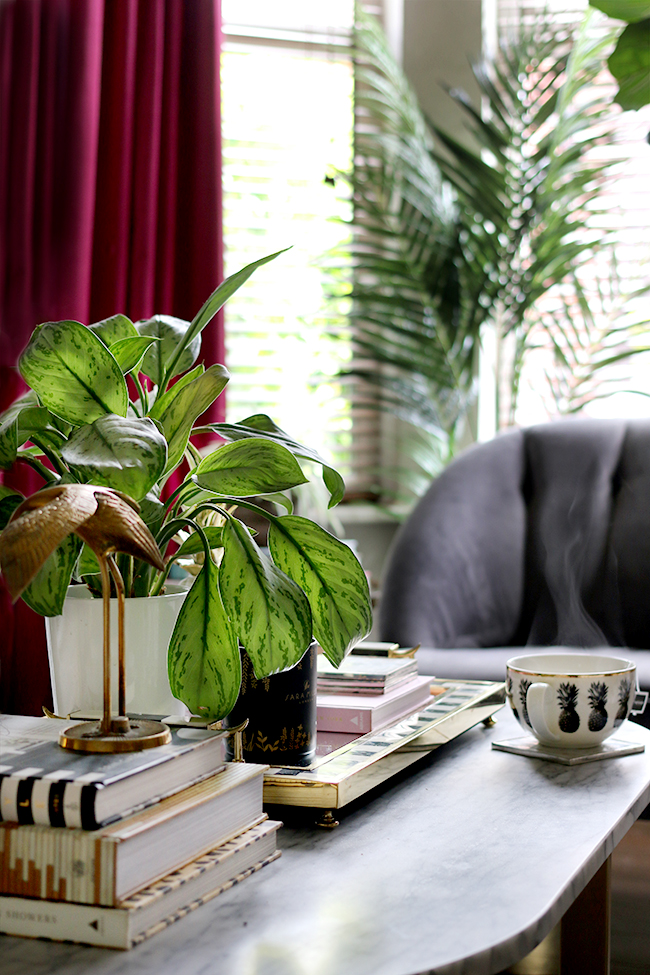
I drink an awful lot of tea now.
Of course, these are not things I think too much about – it’s all happened like a very slow evolution. It’s only when interacting with other Americans that I am reminded how spending the last 16 years in a foreign country has shaped the person I now am. And I have no doubt my brother will bring all this back to me in full force, someone I spent my formative years with, someone who has known me so well for so long.
So today I wanted to share 10 things that I know Americans would find a little strange about the UK. Of course, you all know we drive on the left or that we drink a lot of tea over here. But here are a few things you may be surprised about.
Washing Machines are in the Kitchen

Yes, that’s a washing machine in my kitchen.
While it seems to make no sense to have a machine to wash your clothes in the kitchen, it’s pretty much the norm here. Unless you are posh and have a utility room (which, yes, it’s on my wishlist when we move), it is a typical kitchen appliance. Oh, and we don’t have a tumble dryer. Yes, people have them but they aren’t as common – most people are happy to have their clothes hanging around like a Chinese Laundry all over radiators or drying racks because the number of days that are actually nice enough to hang your clothing on the line cumulatively is about 4 days a year.
The ‘little’ sink at the side of the big sink and washing up bowls
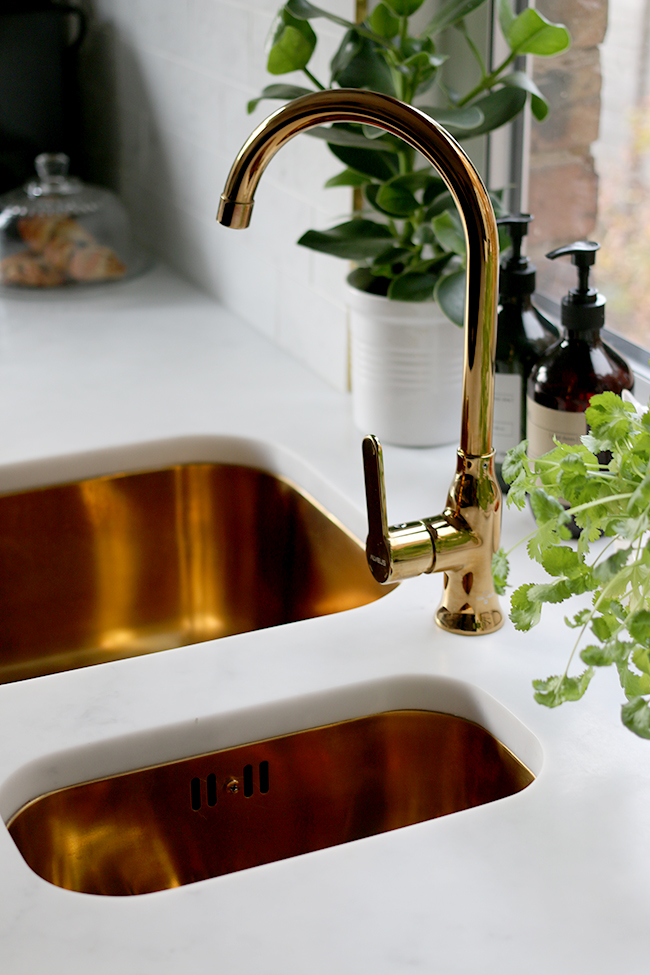
I had so many people asking me what that little sink is for. Ya see, it’s all to do with how the British do their dishes. (Did I mention dishwashers are also not quite as common as they are in the States? Lots of people have them, sure, but they aren’t a given as they are there.) There’s normally a big plastic bowl that sits inside of the sink. So dishes are stacked in there, soaking until they are ready to be washed. Then they are all taken out, the bowl is filled with hot soapy water and the dishes are hand washed in the bowl and rinsed in the ‘little’ sink. If there are dishes stacked in the sink, you still have the little sink available to use which is normally empty. Hey, I didn’t make up the rules, it’s just how it’s done here. Also, I totally don’t use the plastic bowl thing. I have to retain something of my American heritage, after all.
Kettles
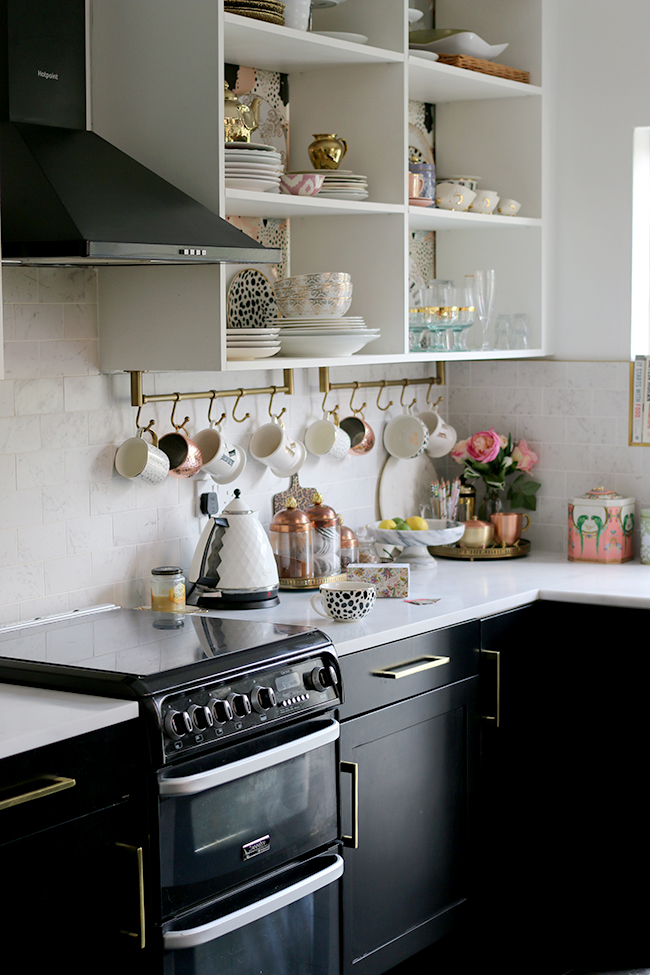
While dryers and dishwashers are not necessarily a given, one thing that every single household on this fair isle has is an electric tea kettle. When I tell my English friends that electric kettles are not as common in the States, I always get a look of sheer horror and incredulity followed by the question, “But how do they boil water for tea?!” So you probably know that tea is a national obsession thereby these little electric babies are an absolute necessity. Take the top off, fill it with water from the tap, stick it back on the little base which plugs into the wall and push down the lever. Within a few minutes, you’ll have boiling water. No need to put on the stove, no need to wait, no need for fancy hot water tap installations – it’s (almost) instantaneous.
Oh and a bonus fact: The National Grid has in place something called TV Pickup. Described as an electricity nuance completely unique to Great Britain, it refers to the fact that massive swaths of the nation’s population will all get up at the same time — say, at the end of a popular TV show or football match — and cause a surge in electricity usage simply by boiling a kettle full of water to make a cup of tea. They actually have systems in place so that the whole grid doesn’t go down. Yes, really.
The sheer amount of various accents
I always find it utterly hilarious (and slightly cringe-y) when Americans try to imitate “the British accent” as though there is only one. Well, actually, you might be familiar with two – the old ‘Cockney’ accent (think Vinnie Jones in ‘Lock Stock and Two Smoking Barrels’) or the ‘Queen’s English’ (like the rich people in Downtown Abbey). Yeah, I promise your pretend accent isn’t as good as you think it is.
The truth is that there are a mind-boggling amount of different accents and dialects in this tiny country. Move 5 miles in any direction and the regional accent will change – and that’s in no way an exaggeration. When I moved from Kent (in the South East) to Manchester (in the North West), it was as though I had to learn English all over again. You will normally hear what is referred to as ‘Received Pronunciation’ which is what BBC News readers use – it’s not regional but instead is considered the most ‘well-received’ ie, the most easily understood and therefore, just a bit posher. But very very few people actually speak like that. There’s a delicious amount of regional variations that will seriously make your head spin.
These are only some of the main ones. I mean, she doesn’t even cover the Manchester accent (which is what Wayne has). Pfft. But it’ll give you a rough idea!
Everything is more condensed.
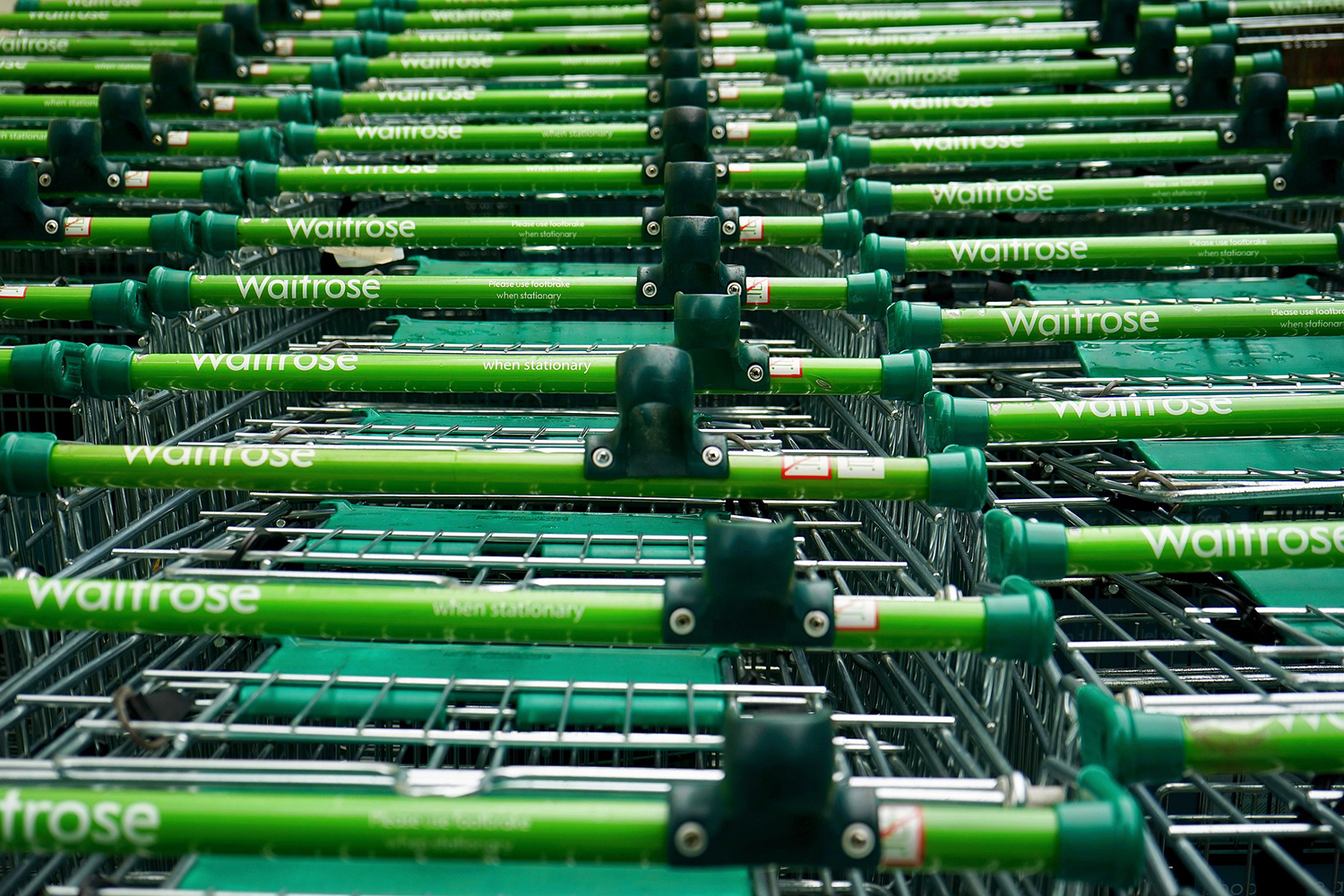
I don’t just mean that the country is smaller. I mean everything is literally smaller and more condensed here. The roads are narrower, the houses, of course, have smaller rooms, even the aisles in the supermarkets are narrower and shorter. Were people years ago that much tinier than they are in America? Probably not but when I first arrived, there was a strange sense of claustrophobia I had everywhere. I’ve gotten used to it but it’s probably why I might refer to, say, my living room, as ‘small’ and I’ll have 10 English people say to me, ‘No, that’s not small… this is small’ and share pictures of their own bijou spaces.
Everyone walks everywhere.

Look at how HAPPY she is not having a car.
Of course, people have cars but due to everything being smaller (including car parking spaces, congested roads and limited parking), many just opt to walk anywhere if they can. So getting in your car for everything from nipping down to the post office to doing your weekly shop is just not a done thing and many people are more than happy to walk everywhere if at all possible. We walk to the pub, we walk to the bank, we walk to do our shopping or we walk to public transport to get to where we need to be.
In fact, it’s gotten to the point now where I’ll soon be giving up my car because I realise how little I use it! I either walk where I need to go or I get on the train. We still have Wayne’s car so having two where one of them ends up sitting there doing nothing but cost money, there seems little point to keeping it.
Oh yeah, speaking of school. Those big yellow buses we have in the US? Not really a thing here. Most people either walk their kids to school (or older kids will walk on their own) or drive which means that early mornings and mid-afternoon are some of the worst times to get in your car. Thus all the walking.
We pay taxes for owning a TV
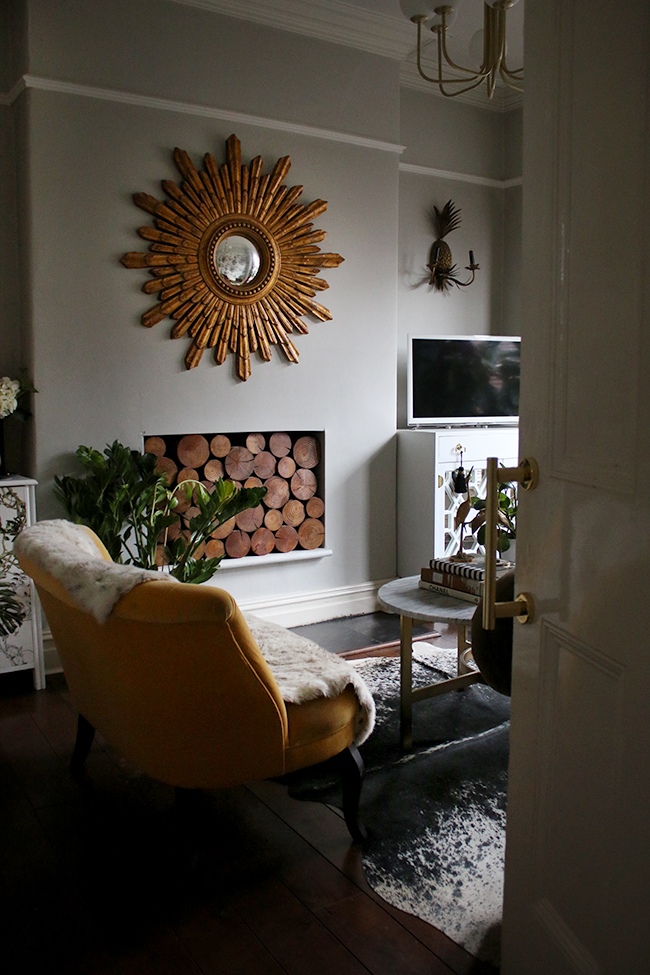
More widely known as a ‘TV license’. Ya know how everyone in America loves the BBC? Well, what you might not realise is that the BBC is government owned and as such, they don’t have any advertising on their programmes. This means that the costs for producing television, radio and film and paying actors and studios and everyone else involved has got to come from somewhere else. So it comes from the British taxpayer. We all contribute to the BBC programmes across the board, paying roughly around £150 a year (or around £12/month or roughly $15/month) for a TV license per household. It is actually very strictly enforced and if you don’t have a TV and you don’t watch the programmes or listen to the radio or stream the content online, you better be able to prove it.
Everything is called ‘pudding’ – except pudding. Which is called Custard.
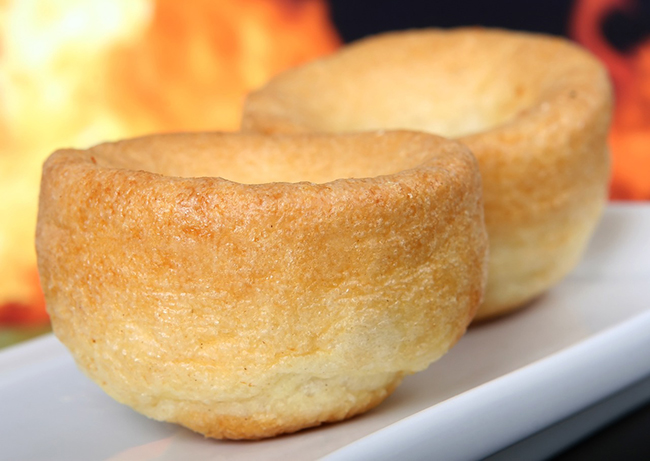
Yorkshire pudding. Except not a pudding at all.
We’ve got Yorkshire pudding (a sort of airy bread made with eggs, flour and milk that you eat with a roast) and Black pudding (a breakfast sort of sausage made from pig’s blood), neither of which have absolutely anything in common aside from their name and the fact they are both savory. While I would call the sweet food you eat after a meal a ‘dessert’, many people here will refer to it as ‘pudding.’ Except for custard which is the closest thing we’ve got to American pudding except it’s not actually called pudding at all. It’s called custard. I can’t even explain this, to be honest. It just is what it is.
They apologise for everything.
Of course, the British politeness is something that is widely recognised but they apologise for EVERYTHING. Even if YOU bump into THEM, they’ll apologise. If they bump into an inanimate object, they’ll apologise. If they are in no way at fault but just feel a little awkward, they’ll apologise. It’s basically this inbuilt response system that covers all eventualities. And yes, I do this now too. Sorry.
The number of amazing words you didn’t know you needed but you totally do.
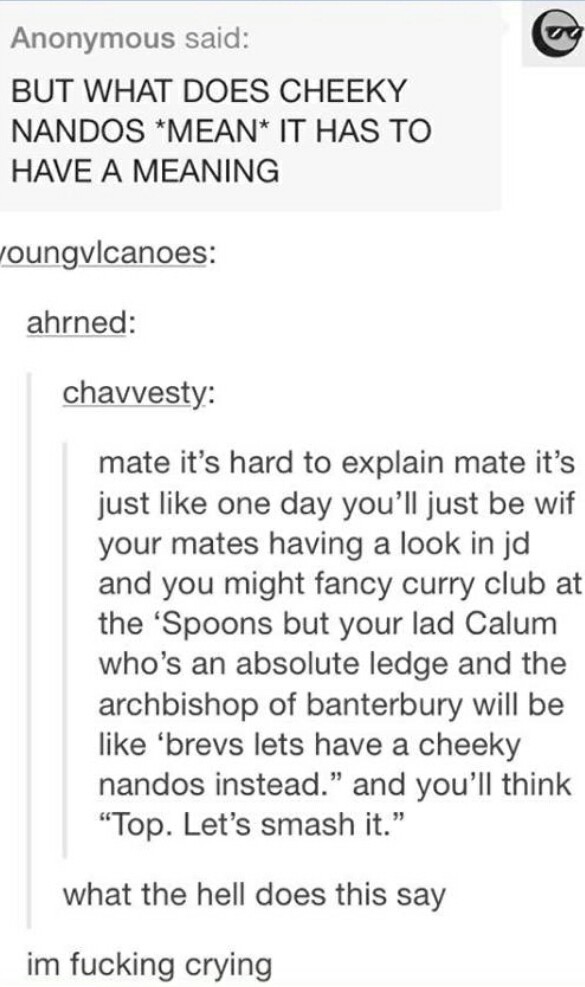
Sorry, I’m not going to even try to explain what a ‘cheeky Nandos’ is.
Just a few of my favourites… Knackered (when you are just REALLY tired), bollocks (when something bad/shit happens), the dog’s bollocks (strangely, this describes something really really good but don’t confuse it with dog’s dinner which is when a situation has gone wrong), wanker (someone who is a jerk), tosser (someone who is a jerk), prat (someone who is a jerk), knobhead (someone who is a jerk… okay you get the idea. There are a lot of excellent words here for someone who’s a jerk), can’t be arsed (when you just don’t feel like doing something), claggy (more Scottish but I love it – means sort of damp/humid/sticky and perfect for describing the weather 80% of the time in summer), taking the piss (a bit rude but means when someone is trying to take advantage. Not to be confused with taking a piss which is totally different or pissed which means drunk; see also taking the mick or taking the michael which are much less rude but mean the same thing), minging (something gross/disgusting), whinge (complaining), jiggery-pokery (deceitful or dishonest behaviour), gormless (someone lacking in intelligence), blather (when someone talks excessively), pop (to go somewhere quickly/spontaneously), gutted (to be gravely disappointed), lost the plot (someone who’s gone a bit crazy, see also: doolally), wonky (something that’s not quite right). I could go on.
So that’s my little roundup of things that Americans might find just a bit peculiar about the UK. Of course, this is just based on my own experience of living in England and what applies here might not apply to, say, Wales or Scotland or Northern Ireland so sorry sorry if I’ve blathered on. I promise I haven’t lost the plot and there is no jiggery-pokery going on here, I’m probably just a little gormless but honestly? I just couldn’t be arsed. ;)
Your turn! If you are an American or an American expat like me, what do you find weird about the UK? Is there anything here that surprised you? If you are British, I’d love to know if you realised these are all quintessentially unique to this country? Go on, let me know what you think!

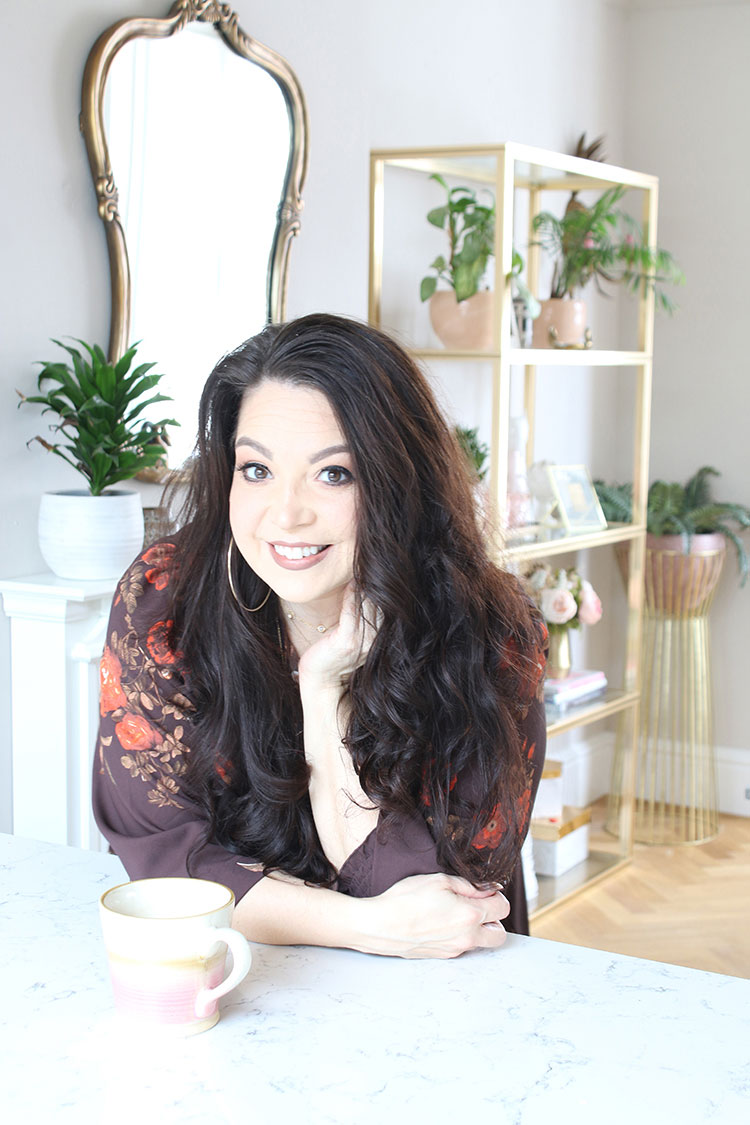
















I’ve been living in London for almost 2 years, similar to you, I’m an American married to an Englishman. I knew there were different words for clothes like sweaters = jumpers, pants = trousers, etc. but I once made the mistake of telling a coworker I liked her pants… Another one that ‘bugs’ me – no screen doors! We don’t have air con (obviously, this is England) so we love to open the doors on a nice day but we end up with bugs everywhere. I always say, there is actually a solution for this, why doesn’t anyone have screen doors! Oh well.
That was an great post and very entertaining. I recognize a few of these, because in Canada we do or say a few of these, too. example, we are always apologizing, too!!
thanks for a great post to start the day!
Absolutely hilarious Kimberley!!! I’m a born and bred Brit and this had me weeping. Particularly loved the ‘Pudding’ section and the bit about hanging our clothes around everywhere because we have 4 days of drying weather a year! It will be great to hear how your brother finds the UK. More of this please!!!
Your brother is going to have so much fun in the UK! :D
6 years are a long time. My neighbour just saw her brother again after EIGHT YEARS, which I thought was horribly long. They are Hungarian, she lives here in Germany, he lives in Canada, so that’s why it took so long. They do Skype and everything, but it’s just not the same. Actually I don’t see my brother a lot, either, and he lives only about an hour and a half away! We manage to get together 4 or 5 times a year, and frankly I always feel like attaching myself to him like a barnaclethe whole time. :D
Loved this! I relate to most of your points. It’s interesting how US homes are getting bigger and UK ones smaller every year. I mean, even smaller than Japanese houses!
I enjoyed this post it made me chuckle whilst eating my lunch. I’m a Brit but was born and brought up abroad so even I find some of the British ways perculiar. I do however like the fact that we are very polite as a nation on the whole and that is often one of the biggest differences I notice with other nationalities.
Love this post!! I’m sure that trying to imitate a British accent is similar to folks trying to imitate a “Southern” accent. Those of us who live in the southern U.S. Know there are many different accents, even within certain states. I usually cringe when I hear an actors version of Southern. It’s always so fake!
This sounds a lot like South Africa really only we dry our clothes on clothes lines outside because we have temperate weather almost all year.Our washing machines are also found in the kitchen, dishwashers are rare and something for the more well off. We have kettles just like you, i couldnt live without one! We also pay a TV license. We too say sorry for everything. Unfortunately we can not walk everywhere because public transportation is terrible so we all own cars which is a nightmare for traffic.
Brilliant post! I’m American but obsessed with British mysteries and, well, really anything British. I’ve studied in both Spain and Italy so the washer in the kitchen, no dryer, walking everywhere, and smaller spaces are all normal to me. Please delight us with more fun British-isms. I could read them (and listen to them) all day.
Haha! This had me giggling as an American who’s been in the UK for 4 years now. I’m totally in the same position accent-wise, too. When I go back to the States, I have an English accent, when I’m home, I have an American one. And in reality, it just means I can’t even say words like pasta and garage right in either accent!
At this point, I feel mostly just used to it (had my first cheeky Nando’s the other day, so I’m basically a citizen now), but then little things sneak up on me. Like how there’s no such thing as seltzer in the UK. You can get sparkling water, you can get soda water, but the first time you try and order a seltzer…. forget it. Straight back to the top of the foreigner list.
Also – how about the tiny sinks they sometime have in the bedrooms of B&Bs? Or Trying to navigate the separate hot & cold water taps when you just want warm water? Or the pre-trailer adverts at the cinema (Americans – it’s OK if you show up 20 minutes late to the movies here, promise!)?
Oh my god, this post is brilliant!!! Soooo funny!! I was laughing all the way through! And you know, when we went to Florida earlier this year, we stayed in a hotel and had a bedroom and little lounge and kitchen area. But what was missing in the kitchen?! A damn kettle!!! I was searching in all the cupboards thinking it must just be tidied away somewhere, but nope. No kettle! There was some coffee machine thingy, but that’s no good to me – how do I boil water for a cup of tea?! I honestly don’t think you would find a kitchen in the UK without a kettle. It’s so alien to me that Americans wouldn’t have one!
And now you mention it, a washing machine in the kitchen is a bit weird. I mean, what have washing clothes got to do with food preparation?? It always seemed normal to me up until now! I guess it must be mainly the lack of space that lead to them become a standard kitchen appliance – there was nowhere else to put them!
Love this post! xx
Loved this post – very funny. I spent quite a bit of time in the US, and could not get used to not having an electric kettle. Also love the washing machines and driers in the US. The apartment I rented had then on top of each other and so quick to do a load!
I came to the UK 27 years ago from South Africa, and what I learned instantly was how to queue – stand in a line. I even stood behind someone for nearly 10 minutes before I realised he was not in the queue. Very polite. People even get on a bus in the same order that they arrived at the bus stop!
I’ve absolutely LOVED reading this post! Coming from another country too, there were so many little nuances that puzzled me when I was new here. The smallness of everything was the first thing I noticed. Then the various accents and the slang! Cheeky Nandos 😂😂 Loved the accents video you posted, that lady is brilliant! 😀 Oh and I didn’t know about National Grid’s TV pickup – learn something new everyday! Hope you’re having a wonderful reunion with your brother xx
What a fun post! I did my interior design internship in Edinburgh many years ago, and loved discovering the fun differences between the US and the UK while living there. I had grown up on British comedies, so I thought I knew a fair amount about British culture, but there are many more differences than one might expect! A few other things that stood out to me:
– Queuing. It’s a big deal in the UK, and if you don’t queue up in an orderly and polite fashion for the bus, you will get stared down. No one explained that to me, but I learned pretty fast.
– Cashiers at the grocery stores work while sitting down, and they don’t bag your groceries. This left me in confusion the first few times I went shopping,, resulting in awkward moments while I stood there, waited for my groceries to get bagged.
– Water: people don’t really drink water like we do in the US. I wasn’t a huge tea drinker at the time, and the people I worked with were flabbergasted and asked what I drink instead of tea. When I replied that I drink water, they were really confused.
I love the UK, and love to go back and visit. It’s a fantastic place filled with wonderful people and great history!
I’m American but I love to visit the UK. I did an internship in London after college and the pants/trouser thing was so funny to me. When I told one of my co workers that we call ladies underpants “panties” that became my nickname with him for 3 months! I find the differences so interesting since early American settlers were British, culture is such a crazy thing!
Also the fist time a Brit said “oregano” and “Aluminum” to me I didn’t know what they were saying! Great post. Cheers!
I really enjoyed your post. I’m an American and I’ve lived in the UK for nearly 20 years now. There are still some things I’ll never understand, when the British say, ‘let’s meet at tea time’ I still don’t know when that is, is it 4pm like ‘high tea’ or later? Quizzing British friends it seems to depend on what region of the country you’re in, there is no specific answer, but it is implied that it is a definite time. The other thing is the ‘top’ of the street or the bottom of the street when there is no hill on said street – how do you know which end is the top or bottom? Other pre-smart phone/internet direction related confusion includes referring to business addresses as ‘Swoonworthy House, Thames Street’ with no number and no cross street reference – the amount of times I have wandered up and down a road looking for said ‘house’. I love the higgly piggly layout of many British villages and towns, but sometimes you miss a decent grid. I recently went to Milton Keynes for the first time and it was the most American style place I’ve ever been to in the UK because of the grid system it was designed on. It was so US style that I was worried I’d start driving on the right hand side of the road!
Excellent post Kimberley – really made me chuckle. I’m English and was fortunate enough to do an exchange year in the US and have many friends in the US. I think your observations are spot on!
I agree about the washing machine. I’m trying to convince my husband it needs to go on the same floor as the bedrooms when we move. After all that’s where the wardrobes (or should I say closet) are! He’s not convinced -ha ha. Perhaps a bungalow is the answer.
Haha Kimberly so funny!
But dont forget it’s even more different in the south, as there truly is a north /south divide in the UK!
loved this post!
best
Ashley xx
This is just the best post!
But I hate washing up bowls, and I hate people who pile the dirty dishes in the sink: you just have to take them out again, and put your hand in that gross food water.
And you didn’t answer the question, how do American’s boil water? On the hob?!
Walking is really strange for the americans – usually they are in their cars or in the public transport. It’s a shame, walking is really healthy for you and a pleasant activity.
Kimberly I now have tears running down my face, Keith has just come in from the kitchen to ask what I was laughing at but I couldn’t talk to him I was laughing to much with everything that has been posted here. If I remember rightly a few years ago when something really big was happening on Coronation Street they had to have extra staff on just in case the grid went down when the adverts where on LOL. Brilliant post Kimberly xxx
Well Ellis Bentley, when you travel 45 minutes to work, or 20 minutes to the market walking isn’t an option. Also most of us don’t live in cities with public transport. Several of our states are the size of England, we have room to spread out. I agree that bigger isn’t always better though. The tiny house is currently very popular in California, as is walking and running for health.
That’s true Linda – and I just don’t think the infrastructure in the US is really made for walking anywhere. Here, there are public pathways everywhere, sidewalks along bigger roads (not the motorway of course but the normal streets) so it makes it much easier to get about on foot. It’s comparable to say, Amsterdam, where everyone rides bicycles. It’s fantastic and easy to say, ‘well why doesn’t everyone here ride a bike!?’ but the infrastructure is there – there are literally bike lanes EVERYWHERE and the city has been built with bikes in mind. Not so here. In the US, walkways and public paths aren’t a given and so even if you wanted to walk or could do it, you might find it difficult! xx
Lol apart from pudding, electric kettle, and tv tax I feel like I’m reading about Japan! It’s so funny that these little quirks make Japan so endearing! I really enjoyed reading this. Thanks for sharing! Hope you have/had a fantastic time with your brother.
Tayto crisp flavours! The first time I had them was in the early ’90s, when potato chip flavors in the US weren’t very adventurous. Prawn Cocktail in particular made me do a double take!